Black group tells Met not to return king’s ‘slavery profits’
He has five wives, a $500,000 Rolls Royce — and is trying to get back $30 billion in artworks stolen from his ancestors 135 years ago, including some of the Met Museum’s most precious works.
Oba Ewuare II of the Kingdom of Benin, a hereditary king in Nigeria, has already received three of the works known as the Benin Bronzes from the Met, and others from the Smithsonian in what it said was repatriation to “right a wrong.”
But now the Oba is facing an unexpected battle, from African-American campaigners in New York who say the bronzes were the proceeds of the royal’s ancestor selling their ancestors into slavery.
The group is moving to sue the Smithsonian to stop plans for the Oba to get even more of its Benin Bronzes and is in talks with the Met to stop it from sending its collection of 154 artifacts to Nigeria.
Lawyer Deadria Farmer-Paellmann, the executive director of Restitution Study Group, the non-profit trying to stop the repatriation of the Benin Bronzes, told The Post: “These are slave trade relics that are being returned to the heirs of the slave trade. They are rewarding slavery twice.”
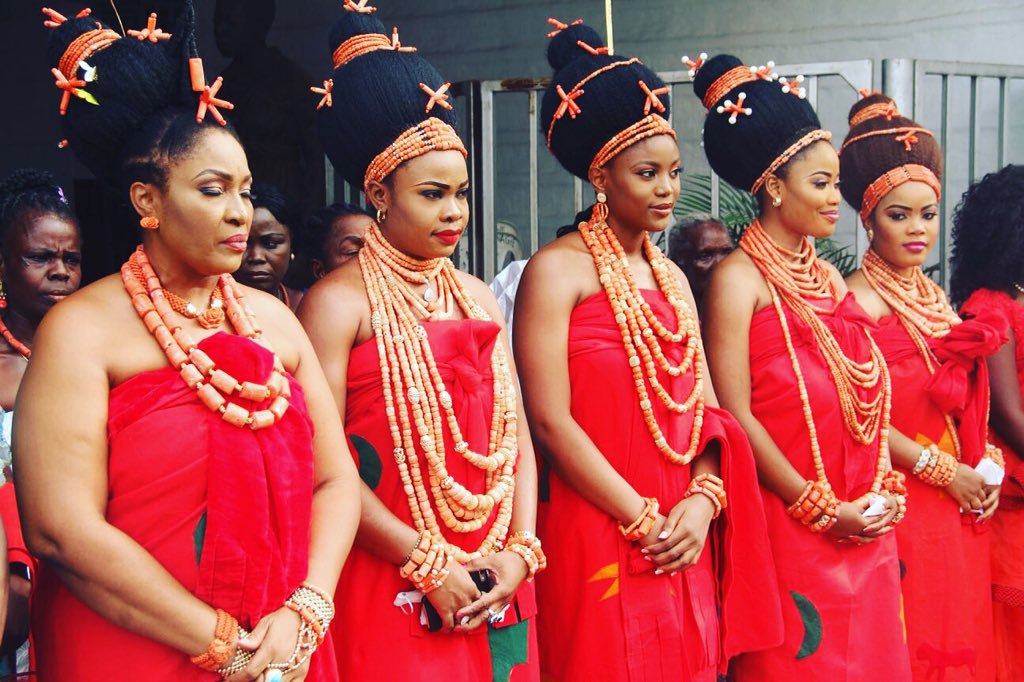
The Benin Bronzes were openly stolen from the Oba’s predecessor Ovonramwen in 1897 by British colonial troops in a “punitive raid,” in retaliation for the ambush and murder of unarmed British naval officers and their African porters in the Kingdom of Benin.
There are now 10,000 scattered in museums and universities across the UK, Europe, and the US. Just one Benin bronze head was sold in 2021 for nearly $13 million in England, meaning the total collection could be worth $30 billion.
The move to send them to Africa has been fueled by demands for “repatriation” and “ethical returns” sweeping the museum world with the Benin Bronzes one of the most high-profile examples of the debate, which has also seen calls for the British Museum to give Greece back the Elgin Marbles, which were chiseled off Athens’ Parthenon.
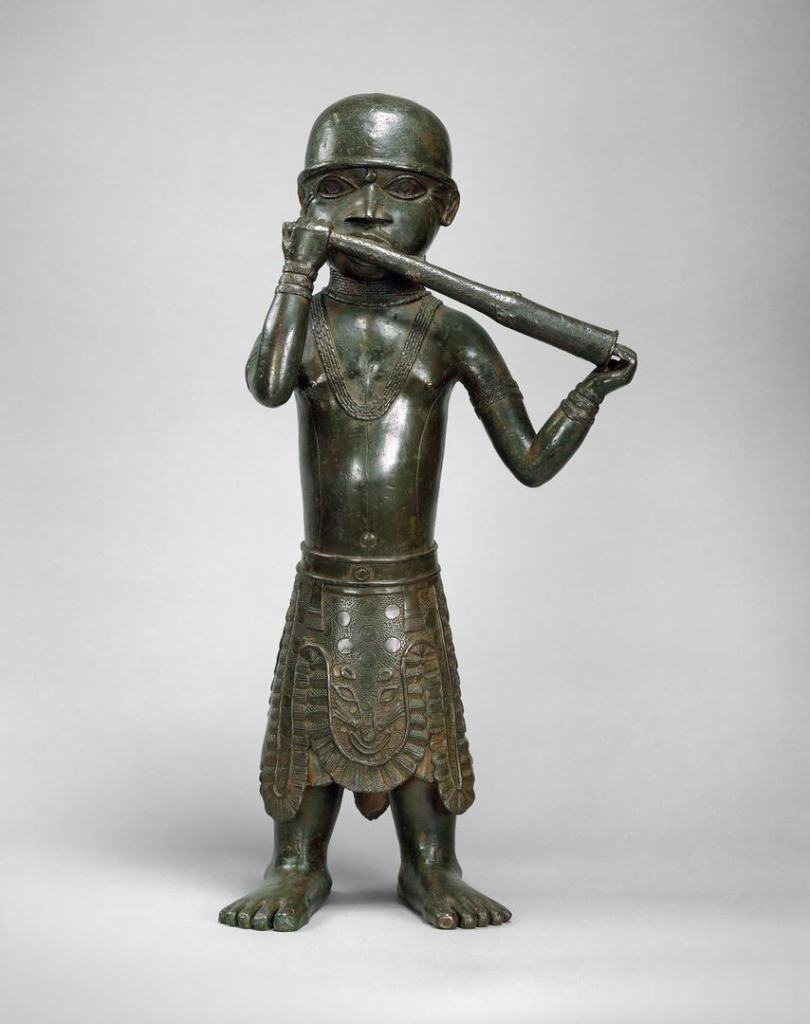
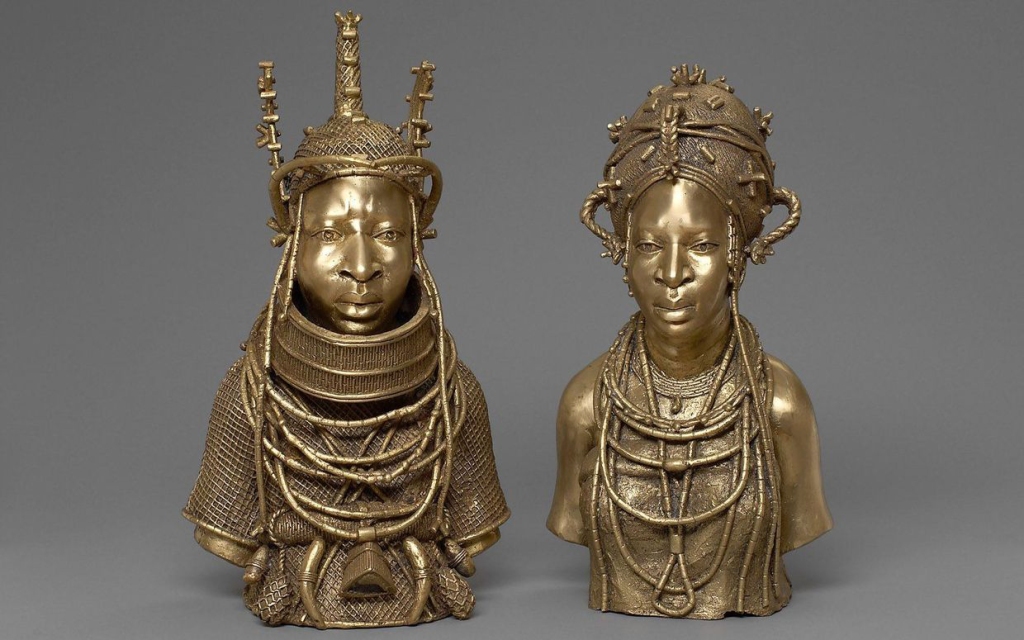
In 2021 the Metropolitan Museum of Art agreed to send three works of art to the Nigerian National Collections: two 16th-century brass plaques created at the Court of Benin and a brass head from the 14th century.
That same year, the Met and the government of Nigeria’s National Commission for Museums and Monuments also signed a memorandum of understanding “formalizing a shared commitment to future exchanges of expertise and art.”
And last October the Smithsonian also sent 29 artifacts in its collection to Nigeria. “Today, we right a wrong,” said Lonnie Bunch III, secretary of the Smithsonian Institution during the October “repatriation ceremony.”
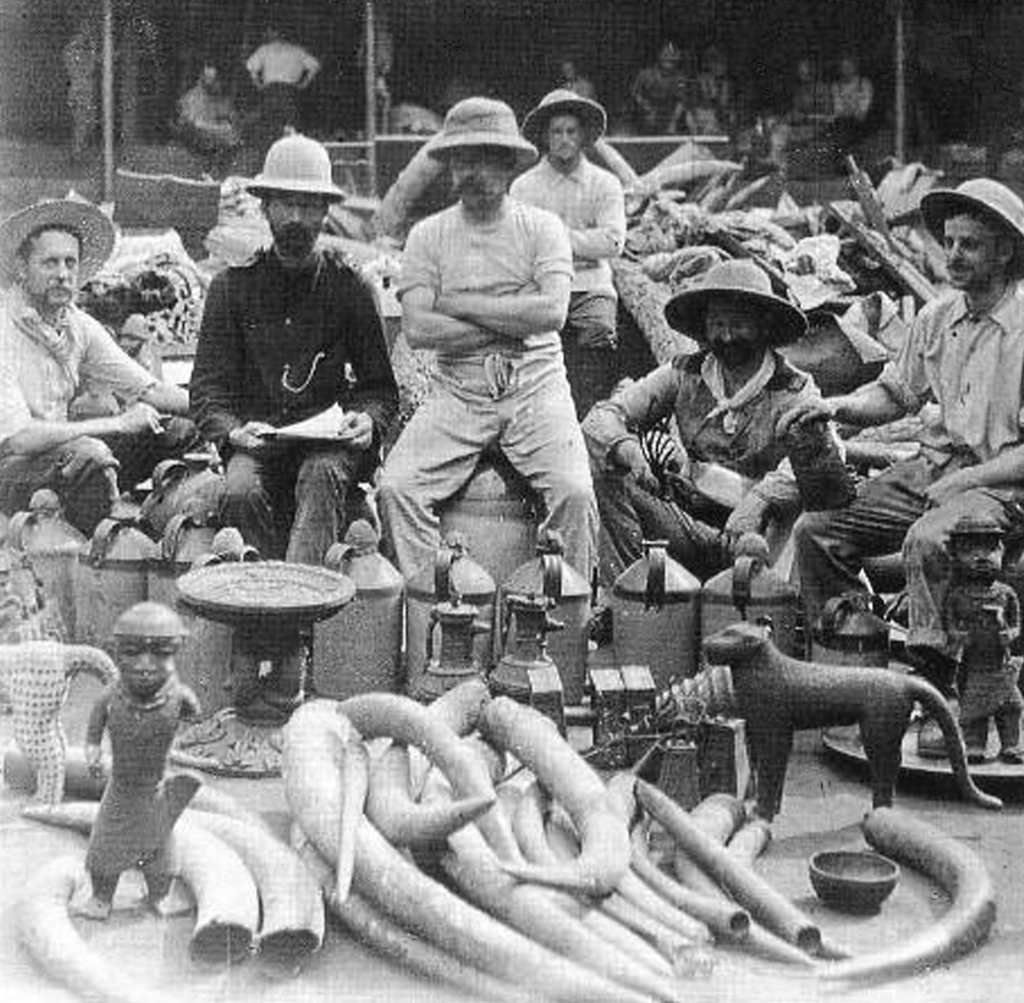

But while the government of Nigeria was the official recipient of the looted works in 2021 and 2022, last month a government gazette declared that Oba Ewuare II is “the rightful owner and custodian of the culture, heritage, and tradition of the people of Benin Kingdom.”
That means that the monarch is now on a path to a $30 billion fortune — but the move has made the idea of sending the bronzes to Nigeria much more controversial.
Farmer-Paellmann’s group sued the Smithsonian Institution in an effort to halt their repatriation plans last year, and although they lost that case, are planning to go back to court, she said.
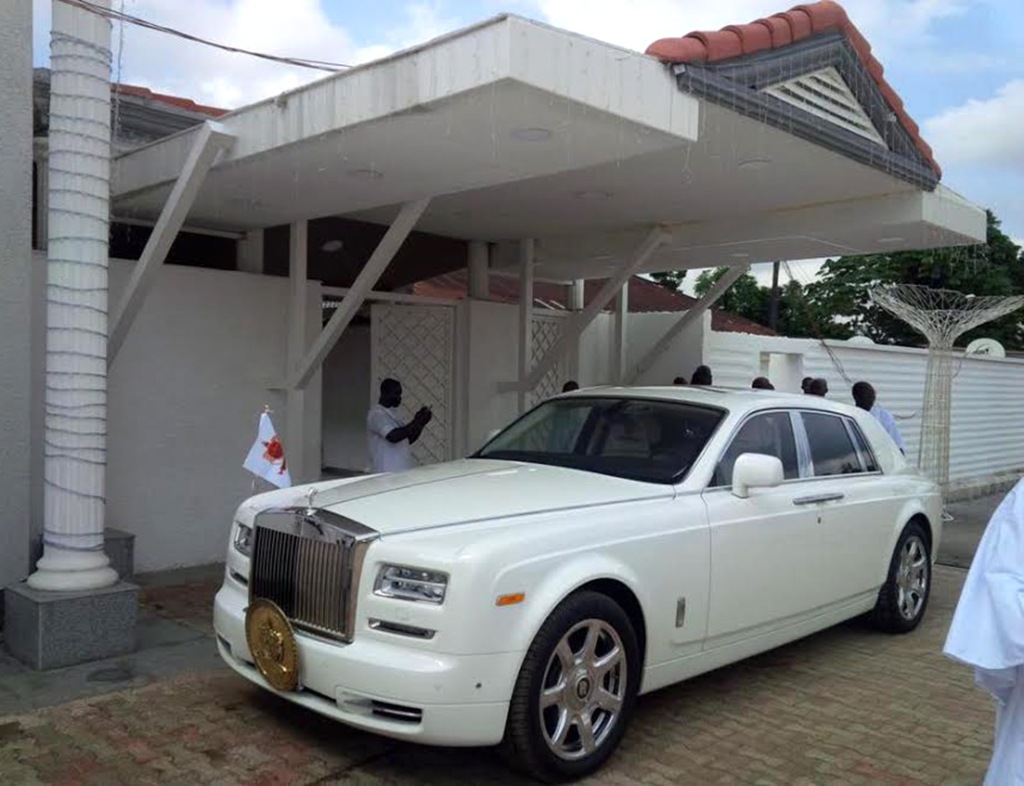
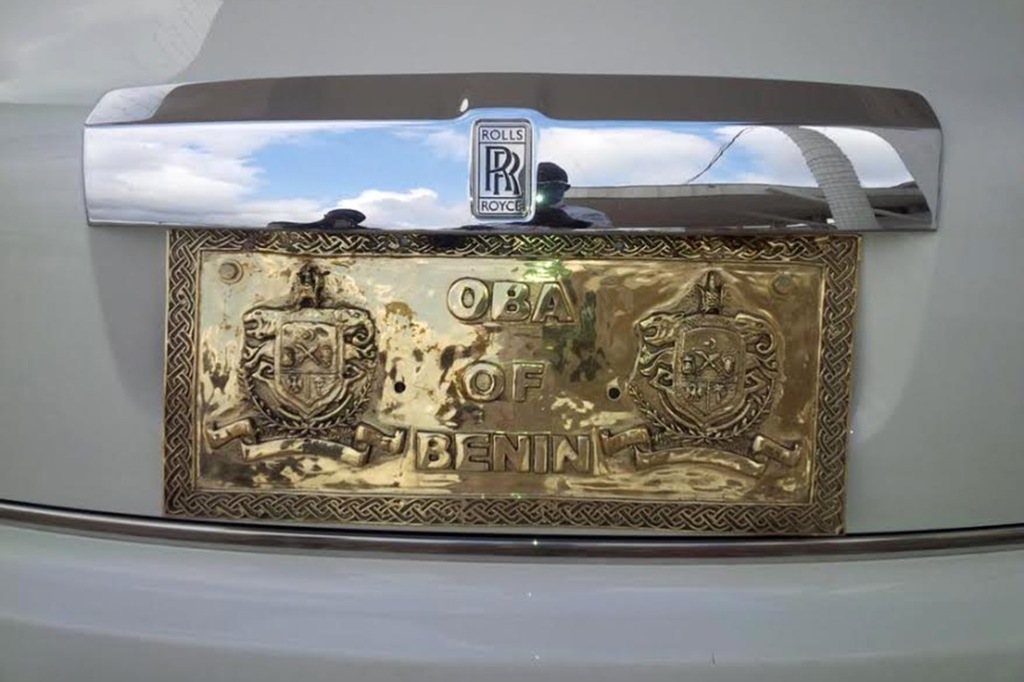
The group says it speaks for 32 million “DNA descendants” of people sold into slavery in Nigeria and transported to the US.
Legal experts, who specialize in restitution, say that Farmer-Paellmann and her group raise some important issues.
“I think the American DNA descendants have a good moral and legal case to share the bronzes, and they are being ignored by the Nigerian and US museums,” said William Pearlstein, a New York lawyer who is an expert in art law and restitution.
Farmer-Paellmann argues that the Kingdom of Benin — which is different from the modern African country of Benin — helped organize the Atlantic slave trade.
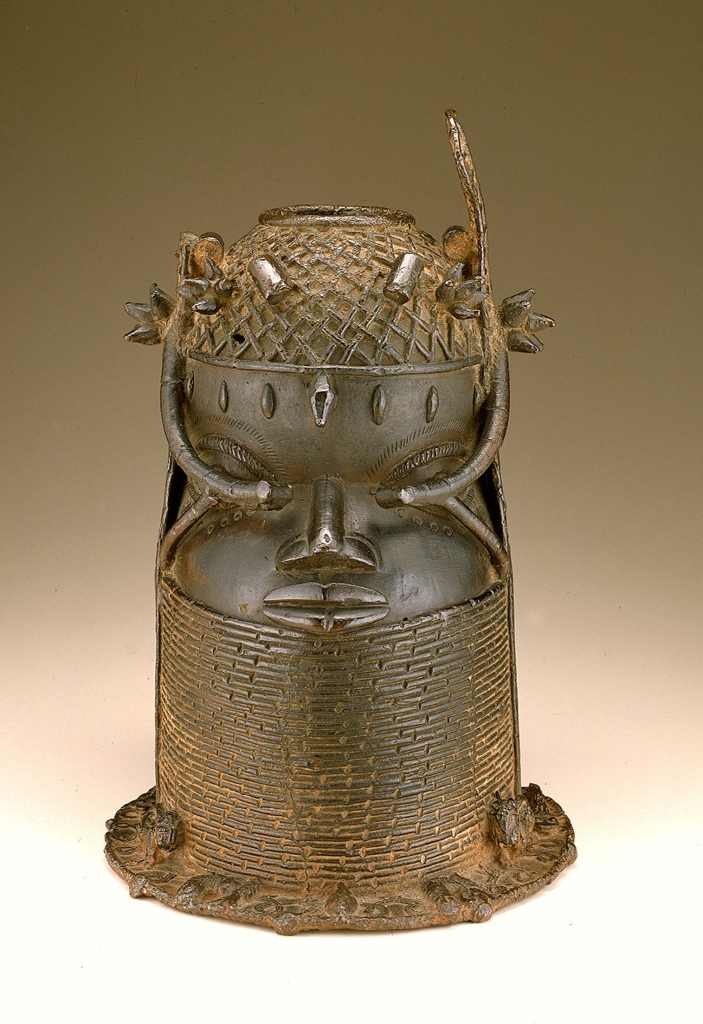
Between the sixteenth and nineteenth centuries, its rulers and nobility accepted brass or copper “manillas” or ingots from European slave traders in exchange for human beings. Many of the manillas were melted down to create the intricate series of metal plaques and sculptures that decorated the royal palace in Benin City until the British took them, the group says.
That makes the Oba the wrong person to get the works, Farmer-Paellmann told The Post.
Ewuare II, 69, who has a master’s of public administration degree from Rutgers University in New Jersey and worked for the United Nations, has ruled the ancient kingdom since 2016.
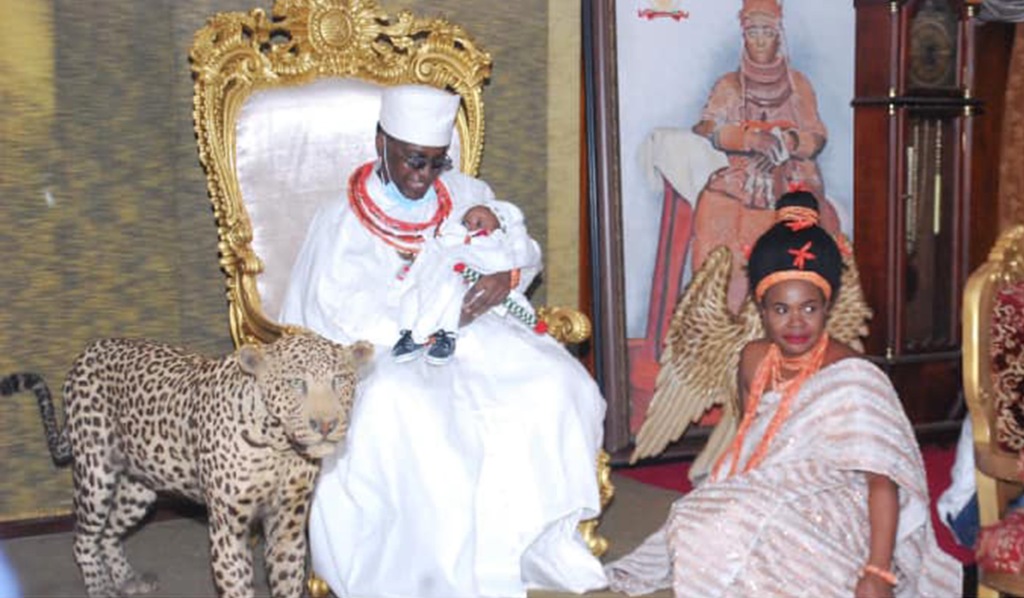
He once issued an official voodoo curse against human traffickers who tried to enslave anyone in his kingdom.
Last year, he presided over the return of two bronze heads and a brass cockerel repatriated from the Universities of Cambridge and Aberdeen at a ceremony at the royal palace.
According to the decree published in the Nigerian government gazette last month, the repatriated artifacts “may be kept within the Palace of the Oba or any other location within Benin City or any other place that the Oba and the Federal Government of Nigeria may consider secure and safe.”
Farmer-Paellmann said it’s not clear where the Oba of Benin will house the works that have been returned since the museum that is supposed to display them has yet to break ground, she said.
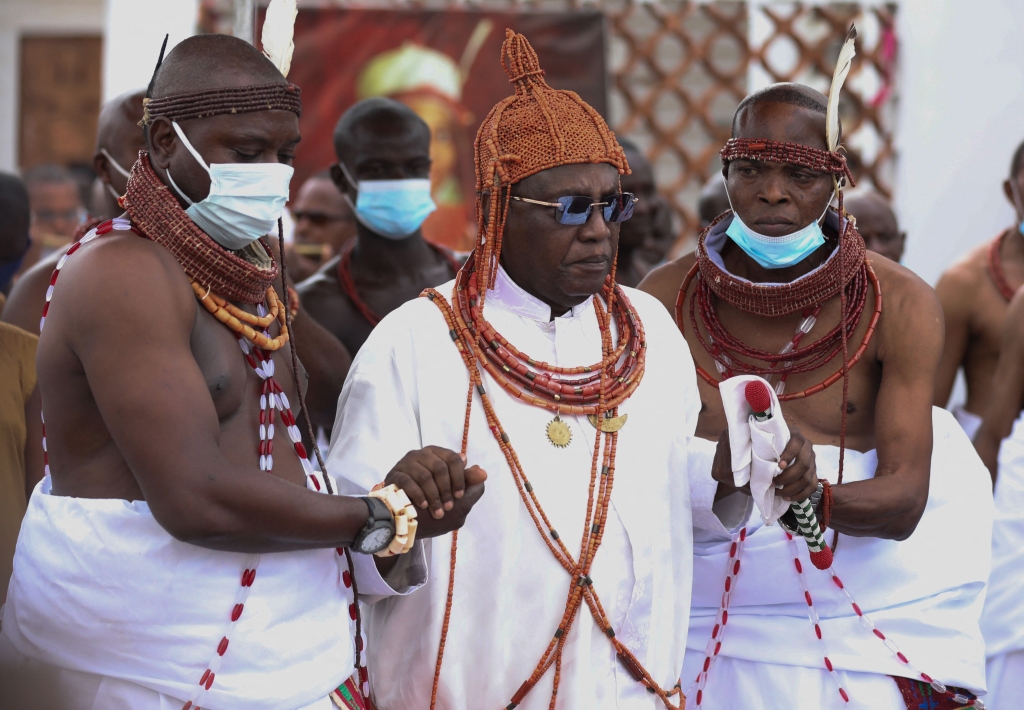
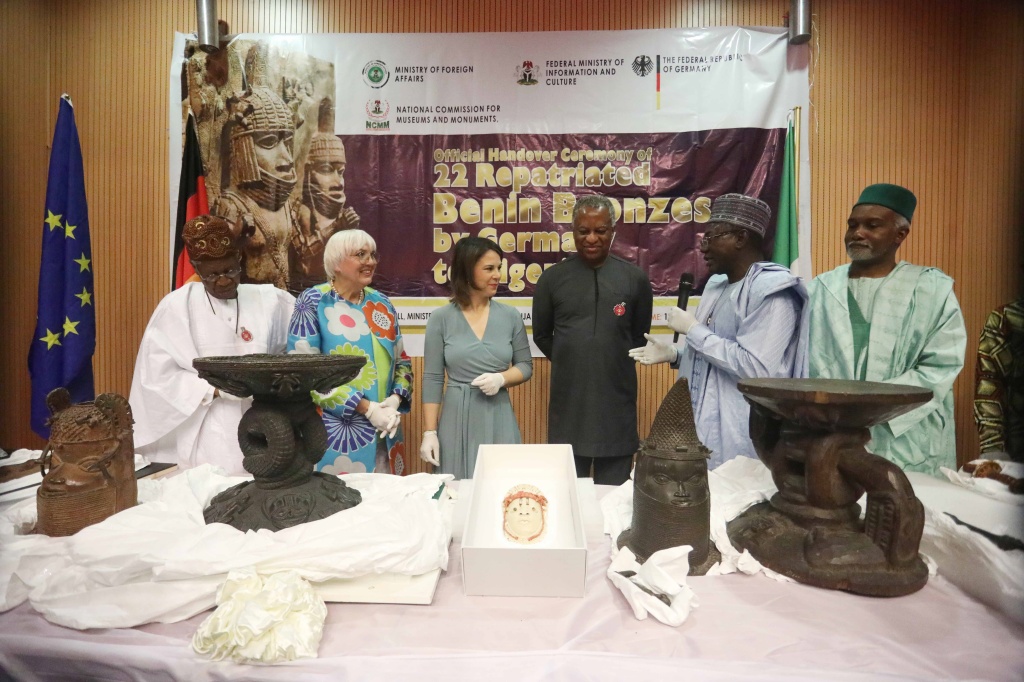
But a spokeswoman for the Oba told The Post Friday that the treasures “will definitely be made accessible to the public.”
A three-story museum, designed by architect David Adjaye and expected to cost more than $4 million, was scheduled to be completed by 2025, according to a 2020 New York Times report.
“The King has expressly stated that plans are underway to build the Benin Royal Museum, which will be funded by the federal government of Nigeria that will house these treasures to educate the Nigerian public about the value and enduring traditions of the Edo people,” said Peju Layiwola, an artist and art history professor, referring to the ethnic group who live in the southern part of Nigeria where Benin City is located.
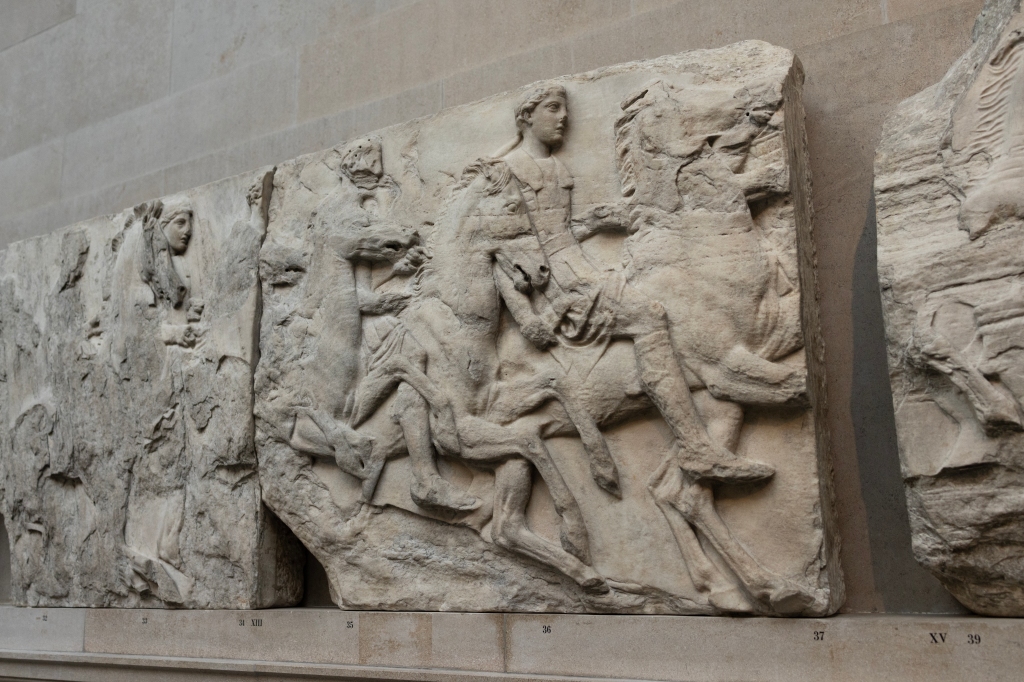
Layiwola told The Post that the Oba had been “magnanimous” by “emphasizing the importance of what these cultural materials represent in the cultural history of the Edo, Nigerians, and the African diaspora.”
Farmer-Paellmann said she has been in talks with the Kingdom of Benin, who “were respectful enough to have a conversation with us.”
“The Benin Bronzes belong to all of us,” she told The Post. “They were literally made with the currency that enslaved us, and we want them to stay in institutions where we have access to them.”
Read the full article Here


